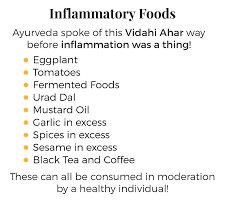Inflammation is the body’s natural response to injury or infection, but chronic inflammation can harm Inflammation is a natural defense mechanism, but chronic inflammation can lead to health complications, including joint pain, skin issues, and slower recovery from injuries. Ayurvedic inflammation recovery offers a comprehensive approach to reducing inflammation and enhancing recovery using time-tested remedies rooted in ancient wisdom.
The Ayurvedic Perspective on Inflammation
In Ayurveda, chronic inflammation is primarily associated with an imbalance in the Pitta dosha, which regulates heat, digestion, and metabolism. Excessive Pitta leads to symptoms like redness, swelling, and irritation. Ayurvedic texts such as the Charaka Samhita emphasize balancing doshas through herbs, diet, and lifestyle adjustments to restore health.
Ayurvedic Remedies for Inflammation and Recovery
1. Herbs with Anti-Inflammatory Properties
Ayurvedic classics like the Sushruta Samhita highlight the importance of specific herbs for managing inflammation:
- Turmeric (Haridra): Curcumin, a key compound in turmeric, is a powerful anti-inflammatory agent.
- Guduchi (Tinospora cordifolia): Known as Amrita in Ayurveda, it detoxifies the body and soothes inflamed tissues.
- Neem (Nimba): Effective for reducing inflammation related to skin conditions.
Reference: The Charaka Samhita, Sutrasthana Chapter 1, describes turmeric’s role in purifying the blood and reducing inflammation.
2. Diet for Managing Inflammation
The Ayurvedic approach to diet involves choosing cooling and anti-inflammatory foods:
- Favor: Leafy greens, aloe vera juice, pomegranate, and barley.
- Avoid: Spicy, fried, and acidic foods that aggravate Pitta dosha.
3. Ayurvedic Therapies
- Abhyanga (Oil Massage): Using cooling oils like coconut or sandalwood oil calms inflammation and soothes tissues.
- Nasya Therapy: Administering medicated oils through the nasal passage helps reduce sinus inflammation and headaches.
4. Yoga
Practicing gentle yoga poses like Child’s Pose (Balasana) calms the nervous system and reduces systemic inflammation.

What to Avoid
To minimize inflammation, Ayurveda advises avoiding:
- Overconsumption of Sour and Salty Foods: They aggravate Pitta.
- Excessive Heat Exposure: Such as prolonged sun exposure or hot baths.
- Stressful Lifestyles: Stress increases inflammatory markers in the body. Learn about Integrating Ayurveda into Modern Lifestyle.
Conclusion
Ayurvedic inflammation recovery is a natural and holistic approach to healing. By incorporating herbal remedies, balanced diets, and calming practices, individuals can reduce inflammation and improve recovery effectively. Ancient Ayurvedic texts like the Charaka Samhita and Sushruta Samhita provide detailed insights into these practices. For more information, read this research on Ayurvedic anti-inflammatory herbs.

